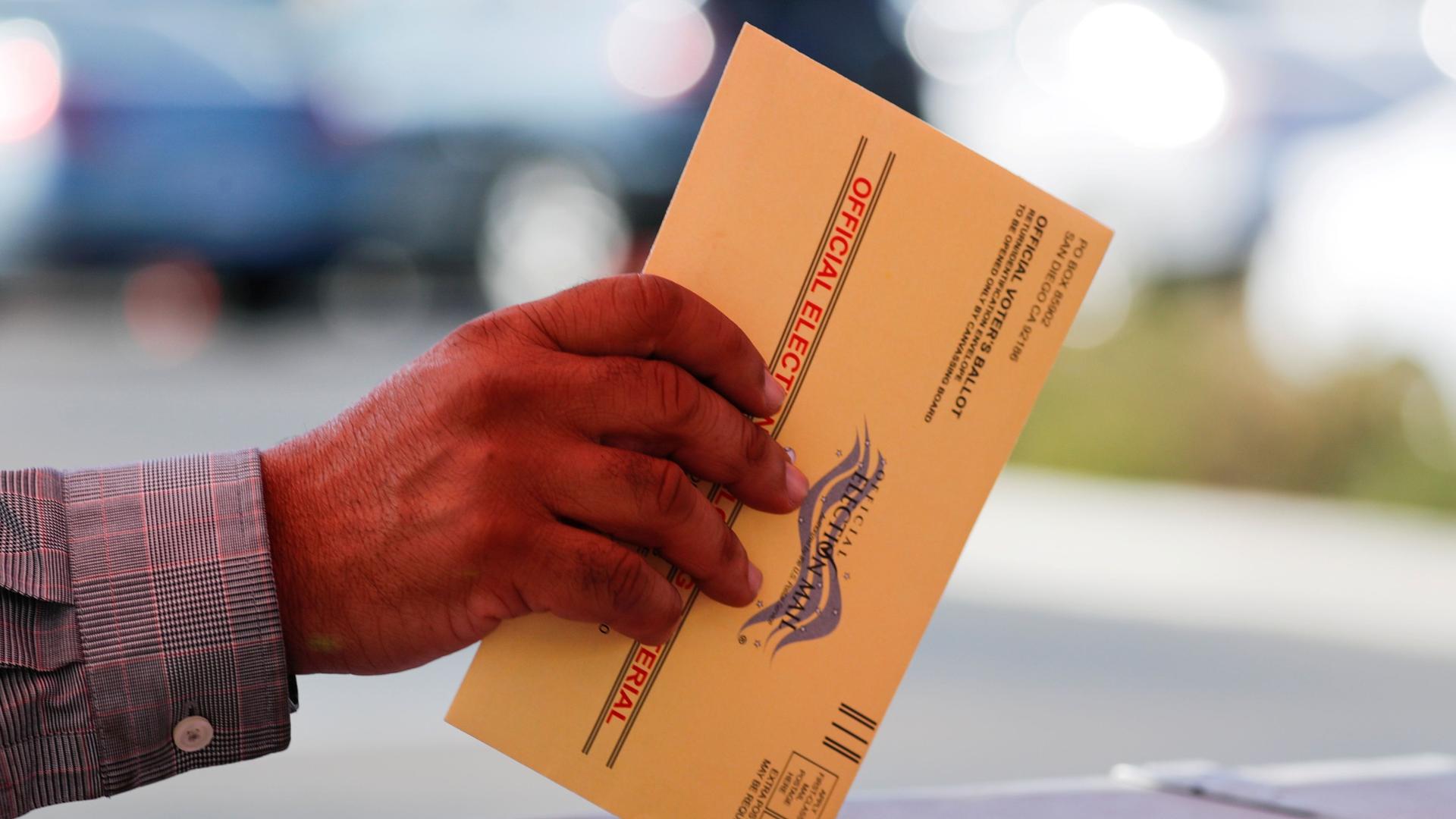As the coronavirus pandemic continues to disrupt the lead-up to the 2020 US presidential election, states across the country are considering online options as an alternative to in-person voting.
Several states — including Utah, Oregon and West Virginia, — currently offer electronic ballot return options in federal elections. But they’re only available to select groups. In Utah, for example, online voting is currently only available to US citizens living abroad, military members stationed overseas and voters with physical disabilities.
Related: For this year’s Passover Seder, to Zoom or not to Zoom?
“Our legislature is having a special session in a couple of weeks, and they’re going to be looking at modifying some laws during emergency situations like this [COVID-19] pandemic.”
“But that may expand,” said Amelia Powers Gardner, who runs elections in Utah County, Utah. “Our legislature is having a special session in a couple of weeks, and they’re going to be looking at modifying some laws during emergency situations like this [COVID-19] pandemic.”
Powers Gardner hopes that Utah lawmakers make online voting an option for more people in the state.
“When we look at voter access, we have to make sure that we’re providing every possible method within reason to our voters, especially in uncertain times like this, where we are facing a potential nationwide crisis,” Powers Gardner said.
Related: Food supply logistics need a coronavirus ‘reset,’ says UN economist
In the meantime, she’s been hearing from election officials across the country who are interested in expanding or starting online voting programs to ease access to the ballot box during the pandemic.
“I’ve had people from the state of Illinois, Indiana, Tennessee. Arizona, Nevada and California reach out to me so far,” Powers Gardner said.
The renewed interest in online voting is reigniting an old debate about the security risks that come with it.
“I think that’s a bad idea … Mobile voting generally does not produce a paper record that can be verified either by the voter or ultimately by auditors,” said Jessica Brandt, head of policy and research for the Alliance for Securing Democracy, an advocacy group.
Brandt says online voting would make US elections even more vulnerable to hacking by foreign adversaries and other actors.
Related: Tommy the robot nurse helps Italian doctors care for COVID-19 patients
“What happens if an adversary … overwhelms mobile networks and just nearly makes it very hard for people to vote on a mobile app?”
“What happens if an adversary … overwhelms mobile networks and just nearly makes it very hard for people to vote on a mobile app?” Brandt said.
Democratic Sen. Ron Wyden of Oregon, an outspoken critic of online voting, agrees.
“The computer technologists that are experts in the election are against this,” he said.
There’s widespread consensus among election security experts that the technology to do online voting safely simply doesn’t exist. Sen. Wyden says he’s particularly concerned about the private companies offering apps and other products that claim to do just that.
“I characterize some of these voter tech operations as snake oil salesmen.”
“I characterize some of these voter tech operations as snake oil salesmen,” he said.
Instead of voting by smartphone, Wyden wants to make it easier for people to vote by postal mail. He and other Democrats have been pushing to make that an option for more Americans. But they’ve faced resistance from Republicans and President Donald Trump.
Related: Spain’s street vendors deliver food, medical supplies amid coronavirus crisis
And, experts say, there will be legal, logistical and political challenges to making that happen this close to the election.
Whatever option they land on, Brandt says it’s important for states and counties to act quickly — to get systems up and running so they can address any kinks and prevent potential mishaps. Because mishaps, Brandt says, are fodder for groups who want to undermine trust in American democracy.
And, she says, it’s crucial that officials communicate changes to the American public clearly because as the pandemic continues to disrupt this election season, Brandt expects a rise in disinformation meant to confuse voters and prevent people from casting their ballots — whether that’s in person at a poll place, through the mail, or over an app.
